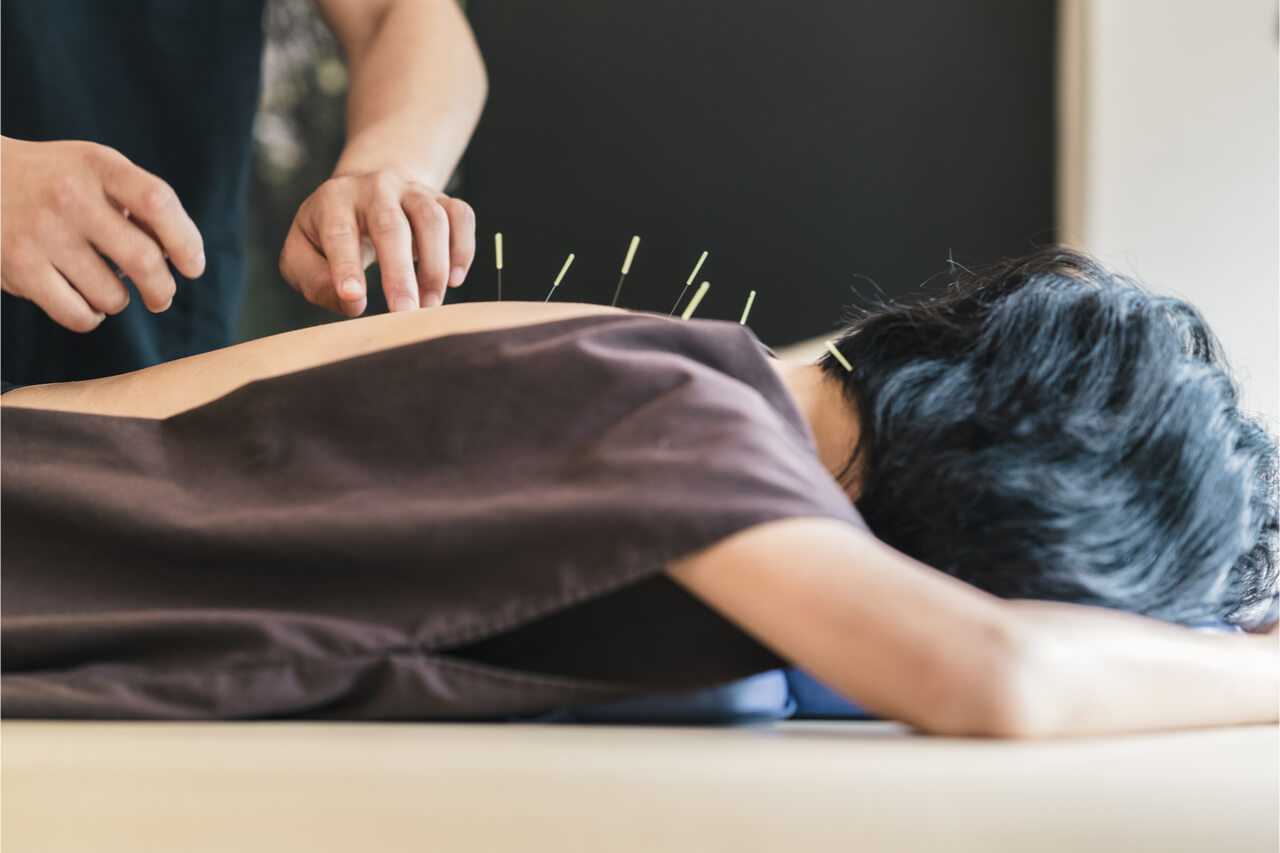Acupuncture has become a widely accepted alternative treatment in Western medicine today and something of a staple of holistic medicine. This age old practice involves the insertion of thin needles into specific points on the body, a technique designed to stimulate nerves, muscles, and connective tissue. Its efficacy and minimal side effects have led to its embrace by healthcare professionals worldwide as a complementary treatment for a variety of ailments. From chronic pain to digestive disorders, acupuncture offers a versatile approach to healing, providing relief where conventional medicine often falls short.
In this article, we’ll explore five key conditions that acupuncture successfully treats, shedding light on how this ancient practice is making a significant impact in our modern healthcare landscape.
Defining Acupuncture
Acupuncture is a healing technique rooted in traditional Chinese medicine, practiced for thousands of years. By inserting needles into specific points along these pathways, acupuncture practitioners believe that energy flow will re-balance, which is essential for health.
The method is based on the concept of balancing the flow of energy, known as Qi (pronounced “chee”), believed to flow through pathways in the body.
The methodology of acupuncture is both precise and targeted. Each needle is placed in specific acupuncture points related to the patient’s symptoms or health concerns. These points are located on meridians that correspond to different body organs and systems. The insertion depth, angle, and manipulation of the needle are carefully controlled to achieve the desired therapeutic effect, ranging from pain relief to stimulation of the immune system. This technique has historical roots that date back to ancient China, providing a contrast to more invasive Western medical practices and offering a holistic approach to health that emphasizes natural balance and minimal intervention.
Let’s now take a look at some of the conditions the practice of acupuncture can help relieve.
Condition 1: Chronic Pain
Acupuncture is widely recognized for its effectiveness in treating various types of chronic pain, including back pain and arthritis. This works by stimulating specific points on the body, which triggers the release of endorphins, the body’s natural pain-relieving chemicals. The practice is thought to affect the part of the brain that governs serotonin levels, an important hormone that influences mood as well as pain.
Research supports the use of acupuncture for pain relief. Numerous studies, including systematic reviews and meta-analyses, have shown that patients experiencing chronic pain from conditions like lower back pain, osteoarthritis, and migraines find significant relief with acupuncture compared to standard pain treatment. A study found that acupuncture was more effective than standard treatments for relieving chronic back pain.
Condition 2: Migraines and Headaches
Acupuncture has proven to be an effective treatment for reducing both the frequency and severity of migraines and tension headaches. This practice, which involves the insertion of thin needles into specific points on the body, is thought to stimulate the nervous system and enhance blood flow. This, in turn, can trigger the release of natural painkillers in the brain, providing relief from the debilitating pain associated with migraines and headaches.
Numerous studies have highlighted the effectiveness of acupuncture in managing headaches. These studies collectively suggest that acupuncture is a beneficial and effective treatment option for those suffering from various types of headache disorders, making it a viable alternative or complement to traditional medical treatments. A recent example includes the 2016 Cochrane Systematic Review found that acupuncture not only reduces the frequency of migraines but also diminishes the severity when added to symptomatic treatment.
Condition 3: Stress and Anxiety
Acupuncture is increasingly recognized as a potent tool for managing stress and anxiety. Scientific research supports the efficacy of acupuncture in addressing psychological stress. Studies have shown that acupuncture can significantly impact the body’s stress response by modulating levels of neurotransmitters and hormones associated with stress and anxiety. For example, a study published in 2014 revealed that acupuncture reduced stress-induced increases in hormones like cortisol, known for its role in the stress response.
These findings suggest that acupuncture provides a valuable complement to traditional stress and anxiety treatments, offering a natural, non-pharmaceutical method to help individuals manage their symptoms and improve their overall mental health.
Condition 4: Insomnia
Acupuncture is an effective treatment for insomnia and other sleep disorders, offering a non-pharmacological option for those seeking relief from sleep disturbances.
The mechanism behind acupuncture’s effectiveness in treating insomnia involves its ability to regulate neurotransmitters that influence sleep patterns. Acupuncture stimulates the nervous system, which in turn can affect the production of neurotransmitters like serotonin and melatonin. These chemicals play crucial roles in regulating sleep-wake cycles and promoting a natural sleep onset and maintenance.
By adjusting the levels of these neurotransmitters, acupuncture helps create a calming effect on the mind and promotes relaxation, making it easier for individuals suffering from insomnia to fall asleep and stay asleep. This approach not only improves sleep quality but also enhances overall well-being, making it a holistic treatment option for those affected by sleep disorders.
Condition 5: Digestive Disorders
Acupuncture offers a promising solution for those suffering from digestive disorders such as irritable bowel syndrome (IBS) and chronic constipation.
The effectiveness of acupuncture in treating digestive issues lies in its ability to enhance gut motility and alleviate the discomfort associated with these conditions. By activating the parasympathetic nervous system, acupuncture helps increase gastrointestinal muscle contractions and digestive enzymes, making it easier for the body to process food and eliminate waste.
In a holistic approach, acupuncture serves as a complement to dietary changes and other lifestyle adjustments. For instance, combining acupuncture with a diet tailored to reduce IBS symptoms or relieve constipation can provide synergistic effects, enhancing overall digestive health. Acupuncture also promotes relaxation, reducing stress levels which often exacerbate digestive problems. This integrated treatment approach not only targets the symptoms but also addresses the root causes of digestive disorders, offering a comprehensive path to better gut health and improved quality of life.
Conclusion
Acupuncture has proven to be an effective treatment for a range of conditions, from chronic pain and migraines to stress, insomnia, and digestive disorders. By targeting specific points on the body, this traditional Chinese medicine practice helps regulate the body’s natural functions and promotes healing, offering relief where traditional medicine sometimes falls short.
If you’re struggling with any of these conditions, or if conventional treatments have not provided the relief you seek, consider acupuncture as a viable alternative. Consult with a qualified acupuncture practitioner who can tailor treatments to your specific needs and health goals. This holistic approach may not only alleviate your symptoms but also enhance your overall well-being and quality of life. Take the first step towards a healthier you by exploring what acupuncture can do for your health.








Leave a Reply
You must be logged in to post a comment.